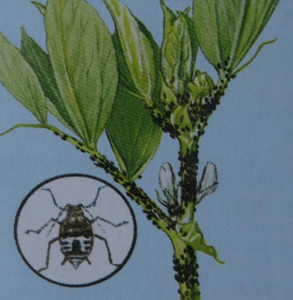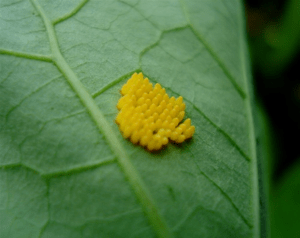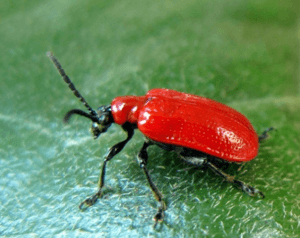Flower garden
- Cutting back growth in hanging baskets can encourage new flowers and foliage and will revive the display. Make sure you that feed your baskets well after doing this.
- Keep dead-heading bedding plants and perennial plants to stop them self-seeding and to encourage further flowering.
- Keep an eye out for pests on plants, early treatment is best.
- Now is a good time to spray ground elder, bindweed and other persistent weeds with a glyphosate-based weed killer as the plants now have lots of leaf surface area with which to absorb it. If you are an organic gardener, continue to remove them which should help to weaken them over time.
- Move plants in pots to shadier spots to prevent heat stress during the hottest periods.
- Pick your sweet pea plants as often as you can. If a flower is left on the plant it will rapidly develop into a seed pod, which will stop growth.
Vegetable garden
- Plant second cropping potatoes now to give you new potatoes for Christmas. Plant your Christmas potatoes in pots or bags which can be brought under cover before the first frosts.
- Pinch out tomato side shoots each week. Cut off any leaves growing below the lowest ripening fruit trusses to improve air circulation and prevent diseases.
- Boost your tomato crop by regularly feeding them with dilute tomato fertiliser once a week. If leaves look pale and yellow feed more regularly.
- Don’t forget to stop cordon tomatoes by removing the main shoot. Look for the leaf that’s above the fourth truss (set of developing fruit) and cut it off here. This should ensure that all the fruits ripen by the end of the season. Bush tomatoes can be left to their own devices. If you are growing a grafted variety and you have the height, five or six trusses are ok.
- Pick your courgettes while they are young. Regular picking encourages more fruit.
- Resist the temptation to harvest more rhubarb This allows the plant to build up reserves for next year.
- Pick runner beans regularly to prevent them becoming stringy and to make room for developing pods. Leaving mature pods on the plant can prevent further flowers forming and reduce your crop.
- Use grass clippings as a mulch around potato plants to stop tubers near the surface from turning green. Alternatively earth up your potato plants as they grow. If you’re growing potatoes in bags, gradually add more compost until the bag is full.
- Tackle blackfly on broad beans by pinching off any affected growing tips.
- Check for cabbage white butterfly eggs under brassica leaves and squash any that you find.



Fruit garden
- Thin out the fruits on your fruit trees to produce good sized crops. Complete final thinning of apples. One or two fruits every 4-6 inches.
- Check the leaves of gooseberry bushes for sawfly larvae, which can completely strip the foliage in a matter of days. Jet them off with water or pick them off by hand.
- Peg down runners on your strawberry plants to create more plants for next year. If you don’t need more plants simply remove the strawberry runners completely.
Greenhouse
- Check plants daily. Water first thing in the morning or in the evening to reduce water loss through evaporation.
- Damp down your greenhouse on hot days to increase humidity and deter red spider mites.
- Open vents and doors daily to provide adequate ventilation.
- Use blinds or apply shade paint to prevent the greenhouse from over-heating in sunny weather.
- Try hanging sticky traps to catch flying pests and help determine which pest control is needed.
Other jobs about the garden
- Keep bird baths topped up in hot weather.
- Keep an eye out for powdery mildew on plants. Remove any affected parts and spray with a fungicide to prevent further spread.
- Look after your aphid eaters – ladybirds, hoverflies and lacewings feast on greenfly and blackfly so it is worth protecting them.
- Keep an eye out for scarlet lily beetles on your lilies – remove and crush any you see. Also check for the sticky brown larvae on the underside of leaves.
- Be water-wise – use grey water from washing up & bath water. Use within 24 hours and water ornamental plants rather than edibles. Don’t waste water on the lawn.
